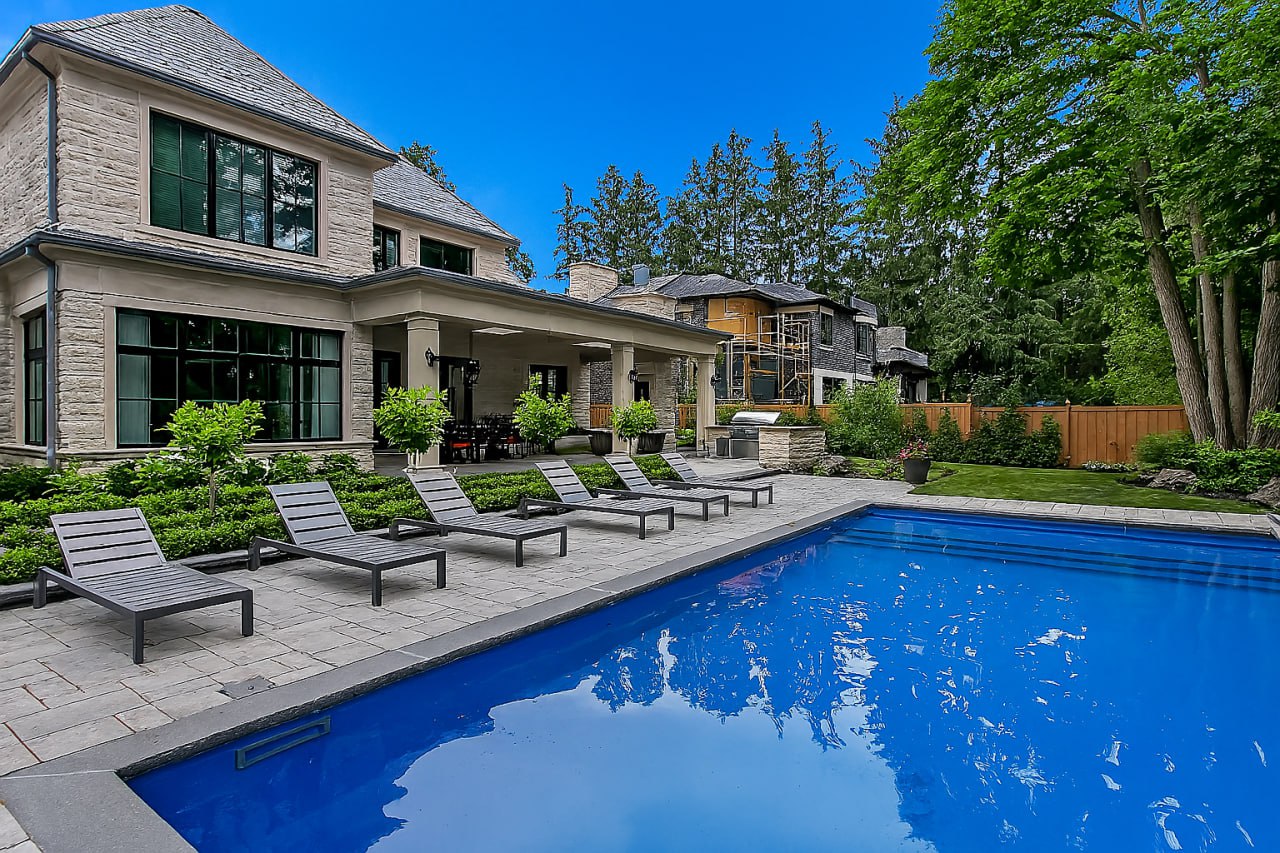Most people spend much of their time indoors, which is why indoor air quality is so important. Unfortunately, poor air quality is a common problem in most residential and commercial properties, and it can have severe consequences for the health of occupants. For example, exposure to airborne contaminants can cause respiratory problems like asthma and bronchitis. In addition, poor air quality has been linked to headaches, fatigue, nausea, and dizziness.
Various pollutants such as smoke (from burning wood, tobacco, and cooking), gases (from building materials and cleaning products), mold, pet dander, and dust mites contribute to poor indoor air quality. Fortunately, having the best air filters in your home can help remove dust particles and other pollutants from the air, keeping you and other people in your home safe from respiratory infections.
Types of Air Filters for Homes
There are two types of home air filters. The first type is electronic filters which utilize a high voltage charge to attract and capture air contaminants. And the other type is media filters that create a physical barrier to trap minute particles. A few home air filters are hybrids that combine these two methods. Here are the top types of air filters for homes.
Flat Air Filter
If you own a forced-air furnace, you already have a rudimentary air-filtration system – the matted fiberglass filter you must change every month. When it clogs with dust or other particulate pollutants, it stops working efficiently and overworks your furnace. Remember, this air filter is designed to protect a furnace from large dust particles. Although this filter can keep your home’s surfaces clean, it won’t block the microscopic particles that often irritate lung tissues.
On the other hand, pleated filters pack more materials in the same space and are slightly costlier than fiat filters. However, they’re designed to do a better job – they’re electrostatically charged to attract all allergens, including pet dander, pollen, and more.
Note that one advantage of flat air filters is that they have a larger surface area than pleated filters. This means that they can trap more airborne particles before they need to be replaced. Additionally, flat air filters are less likely to sag over time because the metal frame provides structural support. This can help prolong the life of your HVAC system by preventing debris from bypassing the filter and getting into sensitive components.
Another advantage of flat air filters is that they’re easier to clean than pleated filters. You can simply vacuum them with a low-powered setting or hose them off with water. Just be sure to let the filter dry completely before putting it back in place.
Extended Media Filters
Think of a stack of furnace filters that are approximately 8 inches thick, and you’ll get an idea of what extended media filters are. These box-like units have an accordion-like pile of filtration material that makes them more efficient than the standard fiberglass air filters. The benefits of extended media filters include;
Improved indoor air quality: Because extended media filters capture a greater number of pollutants, they can help improve the quality of the air in your home. According to a recent study, this is especially important for people with allergies or respiratory conditions which are sensitive to airborne contaminants.
Increased energy efficiency: Dirty air filters cause your HVAC system to work harder than necessary to circulate air through your home. This not only wastes energy but can also lead to premature wear and tear on key HVAC system components. By contrast, clean extended media filters allow your system to operate at peak efficiency, saving you money on your energy bills.
Reduced wear and tear: As we just mentioned, dirty air filters put unnecessary strain on your HVAC system. This can cause parts to break down prematurely, resulting in costly repairs or even the need for a replacement unit. Regularly changing your filter can help extend the life of your system and avoid costly repairs in the future.
Note that the large filter holder must be plumbed into your home’s ductwork. This requires professional installation, which could cost you several hundred dollars. You will also need to change the filters every year or as desired.
Electronic Air Filters
Electronic air filters are high-tech units, sometimes referred to as electrostatic precipitators. As air passes through, the unit’s high voltage puts an electrical charge on dust particles and other pollutants. At the end of the unit, an oppositely charged particle collector plate grabs the charged particles like a magnet.
Generally, electronic air filters work perfectly on smoke particles and other particles that are too small to be trapped in most media air filters. An independent test found that electronic air filters worked 30 times better than the standard fiberglass filters.
By removing even the smallest particles from the air, electronic air filters can help improve the overall air quality in your home. This is especially beneficial for those with allergies or asthma. This higher level of filtration can help extend the lifespan of your HVAC system. This is because no particle accumulation can damage sensitive HVAC components, leading to expensive repairs.
Besides, electronic air filters don’t need to be replaced as often as traditional filters. Thus, they can help reduce your energy costs over time. And by extending the lifespan of your HVAC system, these air filters can help you avoid costly repairs in the future.
Ultraviolet Air Filters
Ultraviolet air filters are designed to remove contaminants from the air, using ultraviolet light to kill bacteria, viruses, and other harmful microorganisms in the air. Ultraviolet (UV) light is a type of electromagnetic radiation with a wavelength that is shorter than that of visible light but longer than X-rays. UV air filters use UVA or UVB light to kill bacteria, viruses, mold spores, and other microorganisms. It disrupts the DNA or RNA of these microorganisms, preventing them from reproducing.
As a result, these contaminants are effectively removed from the air without using chemicals or other harsh cleaning agents. The ultraviolet light simply zaps all airborne viruses and bacteria into oblivion, which is why these filters are very common in hospitals, especially tuberculosis wards. Remember, the bug must reach the air filter before its zapped. So if someone sneezes in your face, UV air filters won’t help.
One of the top benefits of using ultraviolet air filters is the reduced risk of respiratory infections. By removing bacteria and viruses from the air, UV air filters can help reduce your risk of respiratory infections such as influenza, bronchitis, and pneumonia. These air filters can also help eliminate odors in your home caused by smoke, pets, cooking, or other sources.
Portable Room Air Filters
If your home doesn’t have a central heating or air-conditioning system, portable air cleaners or filters are a practical choice. Most of these filters utilize High-Efficiency Particulate Air (HEPA) filters which are not common in most whole home air filtration systems – because they need more powerful fans than a furnace can offer.
Some portable air filtration units, also referred to as ion air cleaners, utilize electrostatic precipitator tech. These ion units don’t require fans and are quieter than the HEPA models. They also cost less to operate, and there are no individual filters to replace. Unfortunately, these ion air cleaners may produce trace amounts of ozone as a by-product of the entire ionization process.
Note that portable room air filters (powered by fans) are often rated by CADR (Clean-Air Delivery Rate), which estimates the air movement and gunk-trapping efficiency. Remember, it’s best to purchase an air filter that is big enough. Most manufacturers recommend CADR of at least two-thirds of your room’s square footage. For instance, a 15×20-foot room requires an air filter with a 200 CADR rating.
Conclusion
Generally, air filters do a great job cleaning your home’s indoor air. They help ensure you are inhaling clean air and not saturated with pet hair, pollen, dust mites, and other airborne allergens. Remember, choosing a cost-effective air filter for your home is in your best interest.
FAQs
How often should you change my air filter?
As a general rule of thumb, you should plan on changing your air filter every 1-3 months. However, there are a few factors that can influence how often you need to change yours. If anyone in your household has allergies or asthma, you’ll want to change your filter more frequently. The same goes for if you have pets – those furry friends of yours can track a lot of dirt and dust into the house! Another thing to consider is whether or not anyone in your home smokes cigarettes – the fumes can cling to your filter and reduce its efficiency.
What happens if you don’t change an air filter?
If you don’t change your filter as often as you should, a couple of things can happen. First, your HVAC system will have to work harder to circulate air through the house, which means higher energy bills for you. Second, all that dirt and dust will eventually make its way into the inner workings of your furnace or AC unit, which could lead to costly repairs.
What type of filter should you use in your home?
There are a few different types of air filters on the market, but the most common are pleated filters and fiberglass mats. Pleated filters are more efficient at trapping smaller particles, so they’re a good choice if anyone in your household has allergies or asthma. Fiberglass mats are less expensive and last longer, so they’re a good choice for homes with no special respiratory needs.






